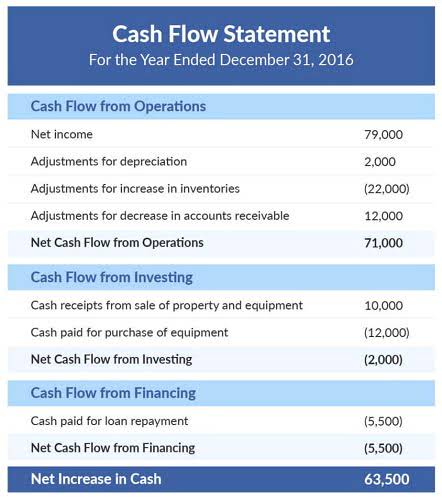Law Firm Accounting: Your Law Firm’s Profit & Loss Statement

Law firms also need to manage cash flow, accounts receivable and accounts payable to be financially stable. Implementing and maintaining accounting systems can also be tricky especially when choosing the right legal accounting software. These challenges highlight the need for a solid accounting framework to navigate the complexities of legal financial management. Can you answer the questions (1) How much does the firm spend on personnel and (2) How much does the firm’s office space cost them?

What to Look For When choosing law firm accounting software.

Annette is a certified QuickBooks ProAdvisor and a Clio Certified Consultant. If you can’t easily understand exactly where your money goes, here’s advice from a law firm accounting expert on setting up your books so you get clearer reports. These simple modifications to your accounting records are quick and easy, and they will give you a great deal of clarity, especially about the expenses your firm is incurring. Beyond specialized accounts like IOLTA, a business checking account plays a fundamental role in effectively managing client funds within a legal practice. To illustrate, I’ve created a mock P&L that exemplifies what I often see when I first look at a firm’s books. The annual BTI Practice Outlook shows the industries with the biggest legal spending increases and top growth legal practice areas.

Top Legal Practice Areas and Growth Industries for 2025
It allows lawyers and administrators to make informed decisions on resource allocation, budgeting and financial planning. Cash basis accounting is the most popular method for law firms because it’s easy. Under this method, revenues and expenses are recognized when cash is received or paid, not when earned or incurred.
Law Firm Accounting: What’s in Your Law Firm’s Profit & Loss Statement?
- Accurate accounting is the foundation of financial stability for law firms.
- Law firms must choose an accounting method that suits their financial management needs and complies with the regulatory requirements.
- By keeping accurate records and financial statements law firms can be transparent and accountable.
- Annette is a certified QuickBooks ProAdvisor and a Clio Certified Consultant.
In short accurate accounting isn’t just about balancing the books it’s about steering the firm to long term success. By using the right law firm accounting software you can have control over your finances, comply and make better business decisions based on real time financials. Unfortunately, you cannot easily answer the questions using the information presented in the sample P&L. This is because the default expense categories employed in this P&L are configured in a way that obfuscates that information. For example, the insurance line lumps together health insurance, workers’ compensation insurance, and E&O coverage.
- Law firm accounting software can automate bookkeeping tasks and ensure adherence to regulatory standards, enhancing efficiency and compliance.
- This involves tracking income, expenses, assets, liabilities and equity to ensure financial statements are accurate and compliant with regulatory requirements.
- Annette Fadness is the president of JurisBookkeeping, Inc., a boutique bookkeeping firm providing accounting support to small and solo law firms nationwide.
- In short accurate accounting isn’t just about balancing the books it’s about steering the firm to long term success.
- If you can’t easily understand exactly where your money goes, you need to revamp your books.
And you can answer them easily, with one quick look at the financial statement. Law firm accounting software can automate bookkeeping tasks and ensure adherence to regulatory standards, enhancing efficiency and compliance. Accurate accounting is the foundation of financial stability for law firms. Inaccurate accounting means financial mismanagement, non https://www.bookstime.com/articles/law-firm-chart-of-accounts compliance and potential reputational damage. By keeping accurate records and financial statements law firms can be transparent and accountable. This precision helps identify cost savings, cash flow and make decisions about growth and development.
- If you can’t easily understand exactly where your money goes, here’s advice from a law firm accounting expert on setting up your books so you get clearer reports.
- Good law firm accounting is key to a firms financial health and success.
- These challenges highlight the need for a solid accounting framework to navigate the complexities of legal financial management.
- By using the right law firm accounting software you can have control over your finances, comply and make better business decisions based on real time financials.
- Beyond specialized accounts like IOLTA, a business checking account plays a fundamental role in effectively managing client funds within a legal practice.
Law firm accounting is the detailed process of managing a firms finances, including recording, classifying and reporting of financial information. This involves tracking income, expenses, assets, liabilities and equity to ensure financial statements are accurate and compliant with regulatory requirements. Good law balance sheet firm accounting is key to a firms financial health and success.
Choosing an Accounting Method
Most small and solo law firms are working with financial statements that don’t give them the information they need to make informed business decisions. Personal and business finances should be separate to ensure that bookkeeping is accurate and compliance is maintained. Don’t let your accountant or bookkeeper use generic expense line items. If you can’t easily understand exactly where your money goes, bookkeeping and payroll services you need to revamp your books. Annette Fadness is the president of JurisBookkeeping, Inc., a boutique bookkeeping firm providing accounting support to small and solo law firms nationwide.
Understanding Law Firm Accounting
This gives a clear picture of a law firm’s cash flow and makes day to day financial management easier. But cash basis accounting doesn’t always reflect a law firm’s financial performance as it doesn’t account for accounts receivable or accounts payable. Law firms must choose an accounting method that suits their financial management needs and complies with the regulatory requirements. Law firms face many accounting challenges from managing client funds to tracking complex transactions. One big one is compliance with regulatory requirements especially around trust accounts and IOLTA (Interest on Lawyers’ Trust Accounts).

Leave a Reply